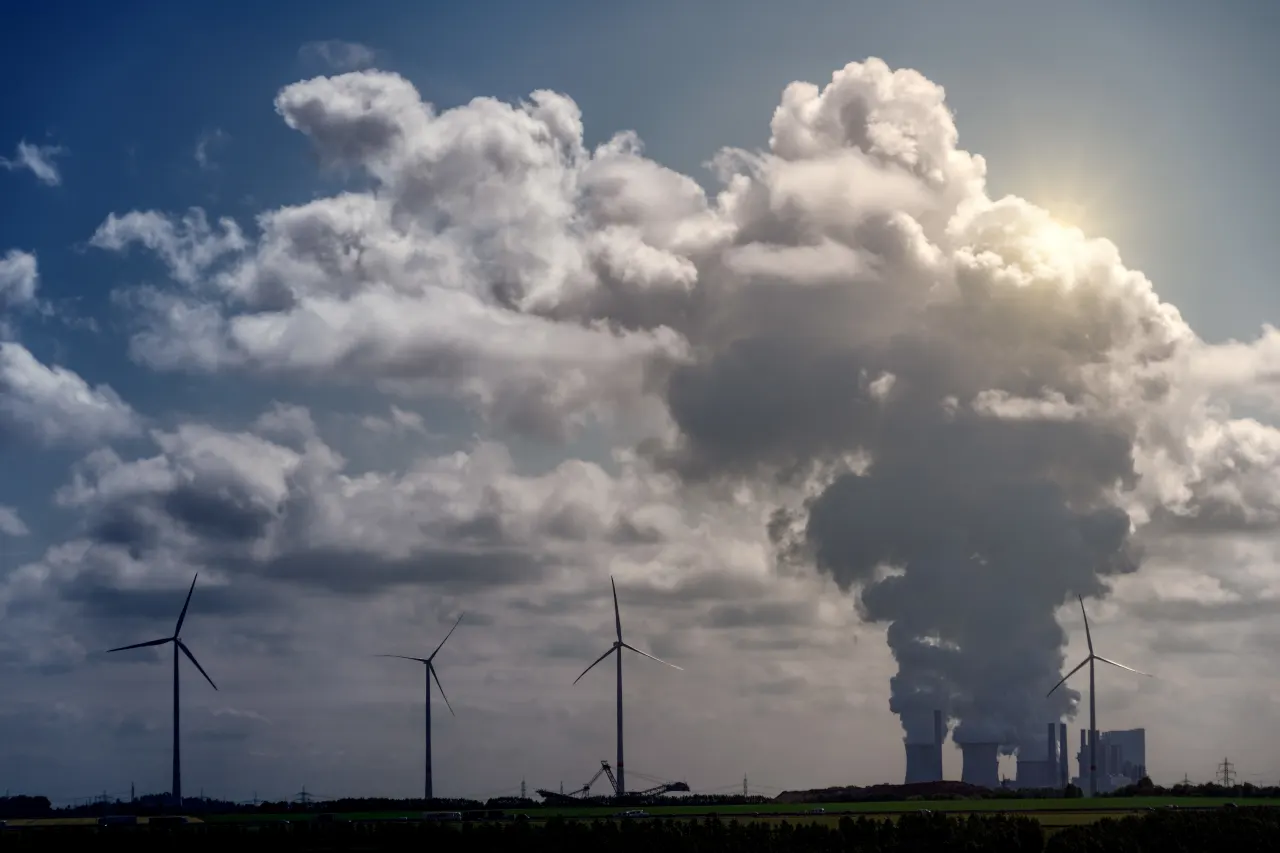US boasts climate leadership as oil and gas production breaks international records • Forbes Mexico

US Vice President Kamala Harris tried to defend Washington’s leadership in the fight against climate change, on Saturday, in a speech she delivered at the COP28 summit, in which she listed a series of initiatives to reduce emissions and harness renewable energy in the world’s largest oil and gas producer. .
The speech came on the second day of back-to-back addresses by world leaders at the Dubai conference, where nearly 200 countries are formulating an international approach to tackling global warming and debating whether fossil fuels should continue to play a role in the energy economy of the future. .
“Two years ago, President Joe Biden took the stage at the United Nations Climate Change Conference (COP26) and made an ambitious declaration: The United States would once again become a global leader in the fight against the climate crisis,” Harris said. Since then, the United States has turned ambition into action.”
It listed more than $400 billion in grants provided under the Inflation Reduction Act of 2022, the climate law signed by Biden, which has generated a flood of clean energy investments. He also announced a new $3 billion pledge to the Green Climate Fund, which helps developing countries combat global warming.
The European Union announces measures to reduce emissions
On the sidelines of the conference, the United States also announced new measures to reduce emissions of methane, a greenhouse gas, resulting from oil and gas exploitation.
Harris declared: “Today we show with actions that the world can and must confront this crisis.”
The United States, the world’s second-largest emitter of greenhouse gases after China, has seen an increase in investment in clean energy projects in recent years, from solar parks to wind turbines and electric car battery factories.
However, it has also become the world’s largest producer of oil and gas – a major source of climate emissions – in the wake of the technological boom in drilling in the extensive Permian Basin of Texas and New Mexico.
Read: France stresses at the 28th Conference of the Parties that rich countries must abandon fossil energies
This strange coincidence highlights one of the most controversial questions at COP28: Could the global response to climate change include the continued use of fossil fuels?
Among the decisions that countries will have to make is agreeing, for the first time, to phase out fossil fuels and replace them with renewable energy sources.
At the United Nations Climate Change Conference (COP28), the United Arab Emirates, an OPEC member, hopes to promote a vision of a low-carbon future that includes fossil fuels rather than avoiding them, primarily by using technologies that can capture carbon dioxide to keep it at bay. outside the atmosphere. Or by making oil and gas operations cleaner.
Decarbonisation promises
The UAE announced on Saturday the commitment of 50 energy companies, representing about 40% of global oil production, to reduce methane emissions resulting from their operations to almost zero by 2030, and to eliminate all greenhouse emissions from their operations by 2050.
US oil company ExxonMobil and Saudi Aramco were among the companies to join the initiative, although each had already set these goals by being part of the Oil and Gas Climate Initiative.
Climate advocates were skeptical.
“Net zero commitments that are not backed by plans and based on government regulations are not worth celebrating. We have to move from promises to regulation,” said Katherine Abreu, founder of the nonprofit Destination Zero.
Read: COP 28: Leaders address economic promises and interest in Gaza
He added: “We have witnessed a long history of oil companies making climate promises that do not translate into real action.”
John Podesta, a senior Biden energy adviser, told Reuters on Saturday that record U.S. production was helping keep consumer prices stable in the wake of Russia’s invasion of Ukraine.
He added that the United States tried to reduce drilling on public lands and waters, but the courts refused to do so, so American policy is now mainly focused on reducing demand for oil.
“We are in a context where we have to reduce the production of fossil fuels and (…) we have to follow the path of lower consumption. Our policies are aimed at this,” he said.
The conference also included a series of international agreements to make energy systems more climate-friendly around the world, for example by promoting renewable sources and nuclear power, and reducing the financing of coal.
On the other hand, the United States was part of a group of 56 countries that committed to measures to accelerate decarbonization by 2030 in sectors such as energy, road transportation, steel, hydrogen, and agriculture.
With information from Reuters

“Bacon advocate. Certified creator. Twitteraholic. Tv junkie. Beer fanatic. Internet nerd. Passionate thinker. Reader.”




:quality(85)/cloudfront-us-east-1.images.arcpublishing.com/infobae/OF4NJDPGLBEYJAZ5XZMH3OIPJ4.jpg)



